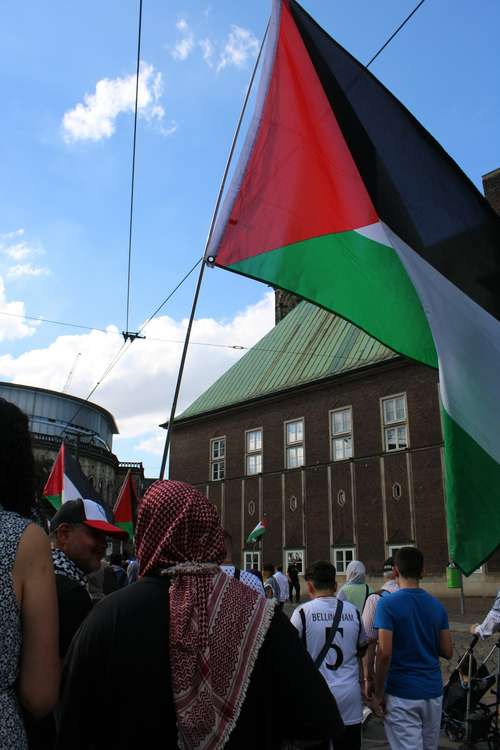Edward Said’s work has forever reshaped how many think about the Middle East conflict and the ongoing struggle for Palestinian rights. His ideas, which emerged during his tenure at Columbia University, continue to spark passionate debate and critical scholarship. Reading his writings, you can feel the intensity of his commitment to offering a voice to the historically marginalized, and his work still reverberates in discussions of Israeli-Palestinian relations today.
It’s hard not to be moved by the raw truth in his perspectives. When Edward Said spoke about the Question of Palestine, he wasn’t simply discussing politics; he was challenging deep-seated cultural misunderstandings. And as time passes, his insights remain as urgent as ever in a world still wrestling with entrenched narratives.
Edward Said's Intellectual Journey
This section gives you a glimpse into the intellectual evolution of one of our century’s most influential thinkers. Edward Said emerged as a thinker who challenged the very foundations of cultural criticism. He questioned not only what we knew about the Middle East conflict, but also how we came to know it.
Said’s academic journey was marked by his dedication to postcolonial studies. His groundbreaking book, Orientalism, critiqued Western representations of the East, arguing that these narratives served to justify colonial ambitions. As you read his work, you’re invited to see beyond simple political debates and explore a broader cultural criticism that questioned dominant discourses about identity and power.
When you put yourself in his shoes, you begin to understand why his call for a reexamination of Palestinian rights resonated so strongly in American academic circles. His writings unveiled the layers of bias that had long clouded perception, challenging us all to think critically about our assumptions in the context of Middle Eastern politics.
Said’s Introduction of the Question of Palestine in American Discourse
This part lays out how Edward Said brought the challenges of the Question of Palestine into American mainstream discussions. In the academic halls of Columbia University, he made it clear that the prevailing narratives could no longer be accepted at face value. He believed that by addressing these issues openly, American intellectuals could better understand a region often mischaracterized.
At a time when American discourse largely overlooked Middle Eastern nuances, Said’s perspective was a breath of fresh air. His approach was not merely theoretical; it was steeped in a deep empathy for the individuals whose lives were affected by the Israeli-Palestinian conflict. The analytical framework he provided helped question oversimplified views and opened up space for more nuanced debates.
His influence rippled through various academic fields and became a cornerstone in the study of Middle Eastern politics and cultural criticism. For many, his work remains a guide for how to thoughtfully explore Palestinian advocacy and the call for genuine self-determination.
Cultural Criticism, Orientalism, and the Advocacy for Palestinian Rights
This section gives a closer look at the intertwined nature of cultural criticism and the struggle for Palestinian rights. Edward Said’s interrogation of Orientalism helped reveal how historical stereotypes continue to shape modern political realities. His argument was simple yet revolutionary: how we talk about the world matters as much as the world itself.
In simpler terms, consider how a photograph can capture an image from multiple perspectives. In a similar way, Said’s work forces us to look at the Middle East conflict from less familiar angles. His exploration of cultural narratives meant that the Question of Palestine was seen not just as a distant political crisis, but as an issue rooted in centuries of cultural misrepresentation and bias.
Many who have followed his work have remarked that his insights act like a mirror, reflecting deep-seated injustices that are often ignored in mainstream discussions. The personal connection he drew between historical context and modern struggles offers readers a way to better understand the complexities of Israeli-Palestinian relations. His work invites us to question not only official political claims but also the cultural images that have long dominated Western media.
This is where postcolonial studies and Palestine advocacy effectively converge. His analysis allows readers to see the interplay between politics and literature, culture and policy, all of which are necessary to have a full picture of Middle Eastern politics today.
The Impact on Israeli-Palestinian Relations
Here we examine how Edward Said’s ideas have influenced modern debates and continue to impact Israeli-Palestinian relations. His work brought fresh perspectives to an age-old conflict, questioning established power dynamics and urging a rethinking of historical narratives. He challenged both academia and policymakers to be more empathetic and informed in their consideration of the region.
In a way, Edward Said’s approach was like a double-edged sword: while it provided intellectual ammunition for those advocating Palestinian rights, it also stirred a broader dialogue on identity and representation that cut across communities and continents. His insights helped demystify the Middle East conflict, encouraging Americans to look beyond headlines and sensationalism, and to understand the human stories behind political statements.
At times, his work sparked controversy, but controversy often fuels necessary debate. By confronting uncomfortable truths, Said inspired both supporters and critics to engage in a meaningful dialogue about policy and justice. His thoughtful critiques continue to resonate today, particularly among those who question the prevailing narratives that have long defined the Israeli-Palestinian divide.
Legacy and Continued Relevance
This final section reflects on the enduring influence of Edward Said's intellectual legacy, particularly regarding the Question of Palestine. Even decades after his passing, his ideas continue to shape discussions around Palestinian rights and broader Middle Eastern politics.
We can see the impact of his work in academic research, policy debates, and public discourse. His insistence on cultural criticism reminds us that understanding the past is key to resolving present conflicts. Every time you encounter discussions about the Middle East conflict, elements of his analysis on Orientalism and cultural bias can be found echoing in modern debates.
The world of postcolonial studies still heavily references Edward Said's writings. His work is a common thread in discussions about cultural misrepresentation and the need for social justice. His intellectual legacy functions like a roadmap for those seeking to understand the complexities of regional and global politics in relation to the Palestinian struggle.
The ongoing relevance of Said’s perspectives has encouraged a new generation to ask tough questions and seek answers in a thoughtful, informed manner. His contributions remind us that history, culture, and politics are inextricably linked, and that genuine understanding of the issue demands both academic rigour and human empathy.
In sum, Edward Said’s contributions opened up the contemporary debate on the Question of Palestine in profound and unexpected ways. He gave new life to discussions on Orientalism, challenged conventional representations of the Middle East conflict, and grounded the conversation in the human realities of Palestinian rights. His legacy continues to encourage us to look beyond simplified narratives, urging us to embrace a richer, more complex understanding of Israeli-Palestinian relations and broader Middle Eastern politics!




